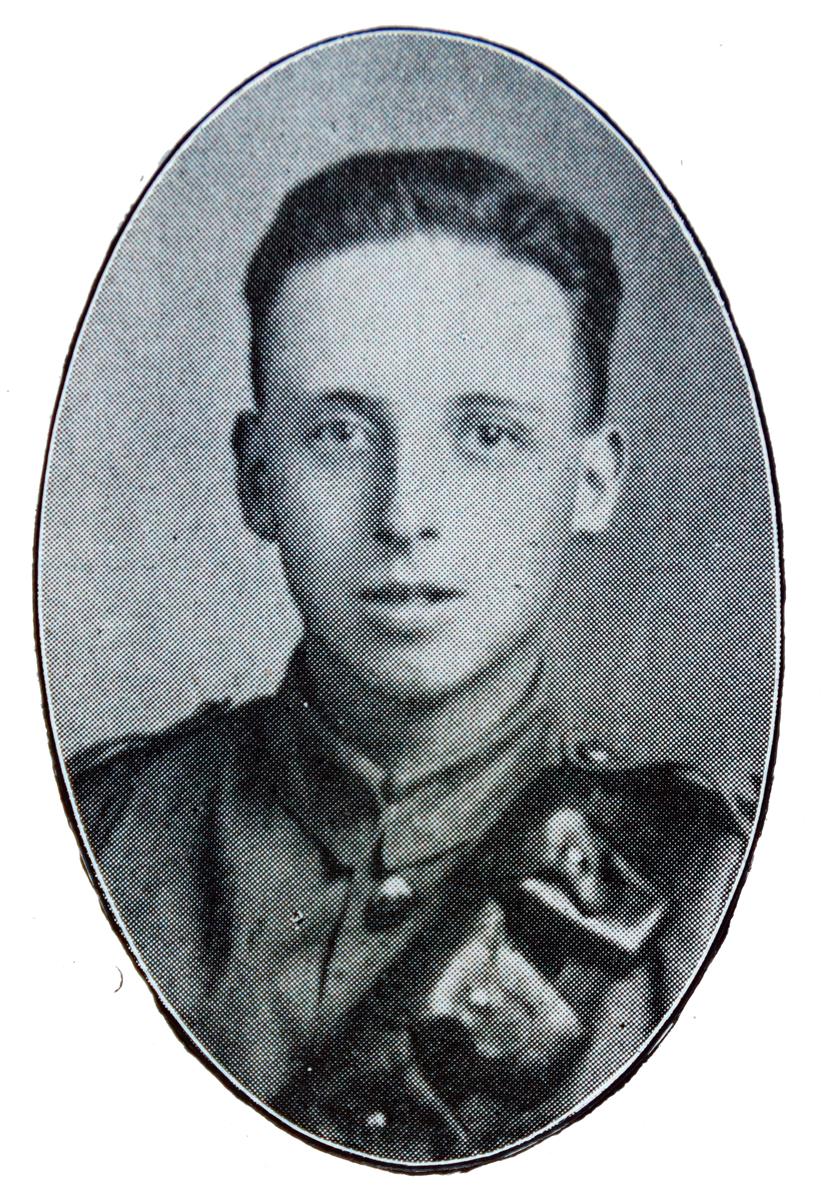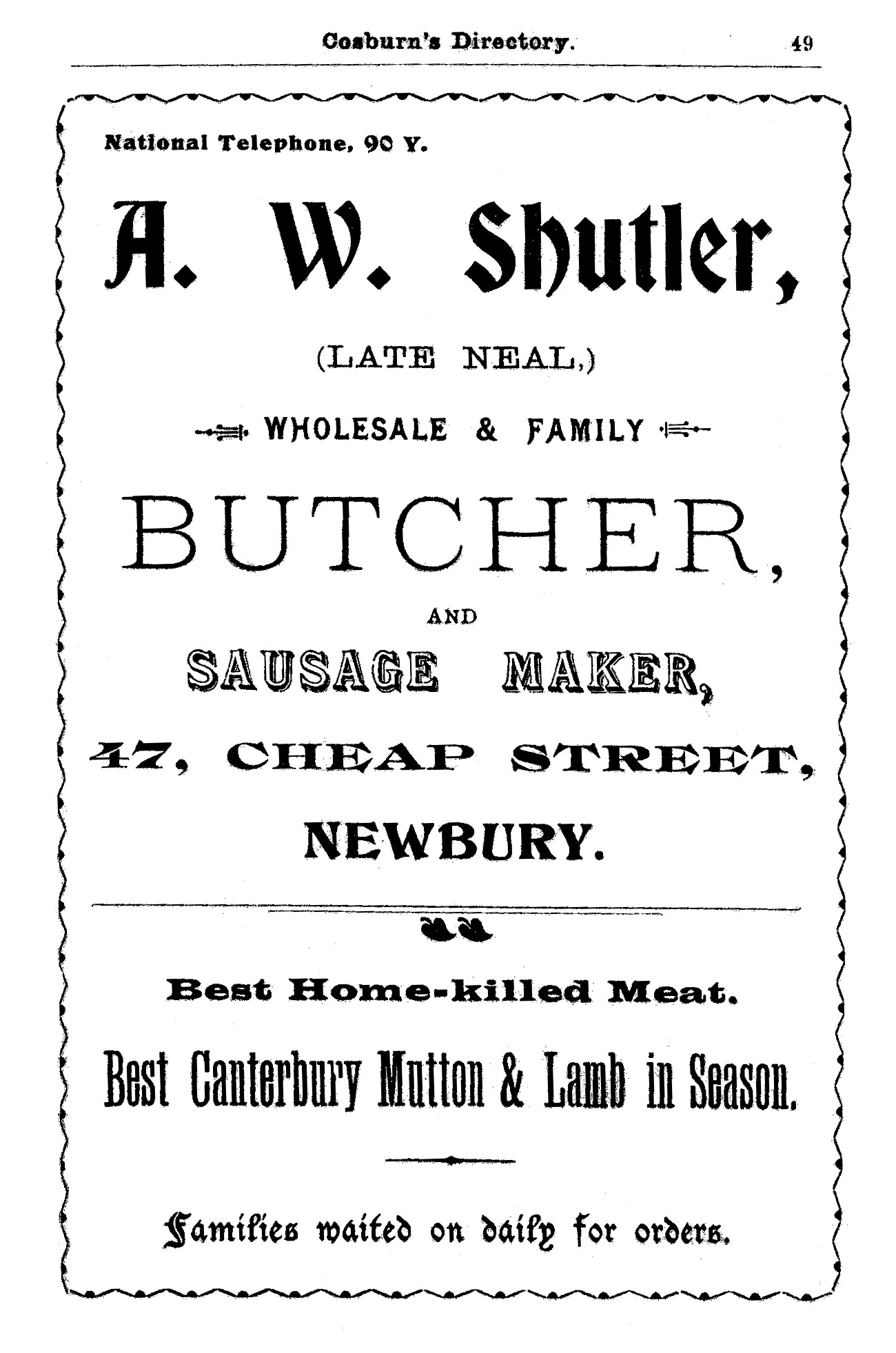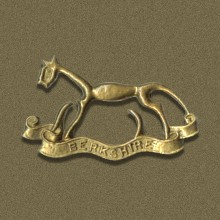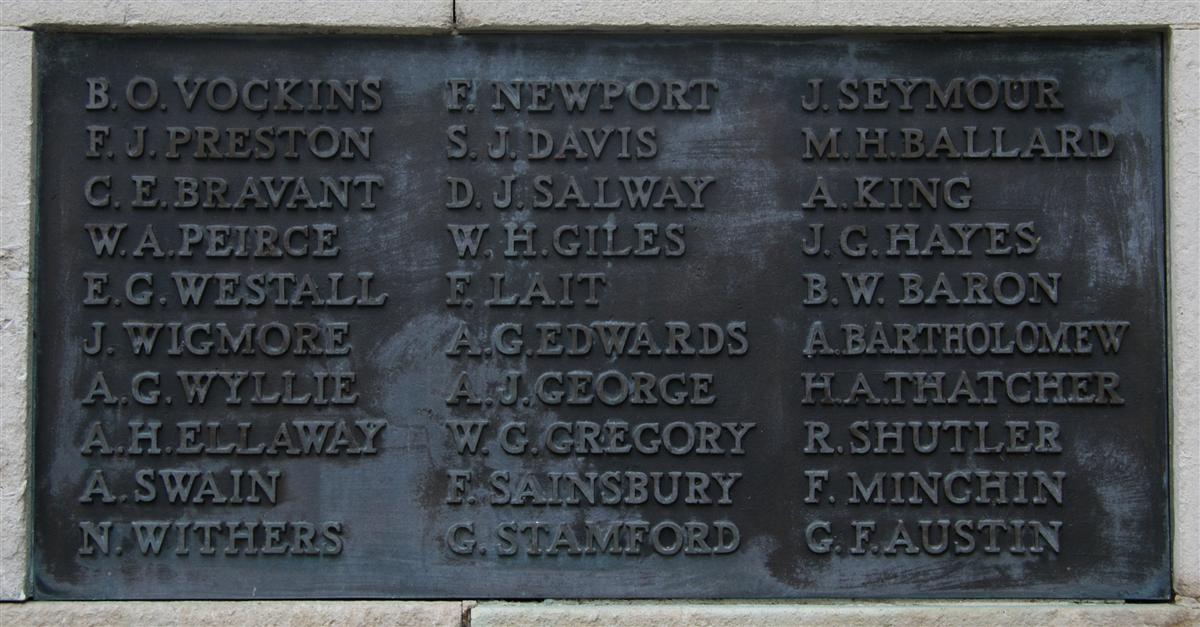Ralph Shutler
Trooper 2195 Ralph Shutler, 1st Berkshire Yeomanry

Ralph Shutler |
Ralph was born on 25 November 1896 in Broadwindsor, Dorset and was baptised there on 20 December. He was the son of Amos William Shutler and his wife Pauline née Wakeley. He was their only son, his siblings being four sisters: Hilda Mary (born 1891), Kathleen Ruth (1900), Margaret Pauline (1902) and Laura Leititia (1903). Kathleen died as a child in 1903; a second such loss is recorded on the family’s 1911 census return which records that the marriage resulted in six children two of whom had died, but no record of a sixth child has been uncovered.
Amos was a butcher and had learnt the craft from his own father, Richard. In 1906 Amos moved his family to Newbury, where he took over a recently established butcher’s business at 47 Cheap Street. Ralph completed his schooling in Newbury, first at the Wesleyan School and then, from September 1908, at Newbury Grammar School.
On 11 April 1911 he left school to work for his father, by the time the war began in 1914 he was working as his father’s assistant - well on the way to becoming a fully qualified butcher. However, war changed everything and young Ralph was caught up in the patriotic fervour of the time.

An advertisment for Amos Shutler's Cheap Street business - offering the best home-killed meat. |
On mobilisation the Berkshire Yeomanry gathered at Churn Camp on the downs near Didcot; they were joined by the Queen’s Own Oxfordshire Hussars and the Buckinghamshire Yeomanry their fellows in the 2nd South Midland Mounted Brigade (the 1st Brigade gathered on Newbury Racecourse). In September the Oxfordshire Hussars left the brigade to go to Belgium and were replaced in the brigade by the Dorset Yeomanry.
The Berkshire Yeomanry had to wait until April 1915 before they went overseas after spending the winter in quarters in Norfolk during which time the 1st and 2nd South Midland Mounted Brigades were reorganised into the 2nd Mounted Division along with two more mounted brigades, horse artillery and other divisional troops (medical, veterinary, signals, supply & transport). On 21 April the Berkshire Yeomanry landed in Egypt.
Strictly speaking Ralph should not have been with them, as an eighteen-year-old he was too young to serve overseas – Army Regulations clearly stated that men should not see active service before they were nineteen. However, this was one regulation that was much overlooked in 1914/15 in the face of young lads’ keen desire to go with their mates.
While in Egypt the Division was reorganised and the 2nd South Midland Brigade became the 2nd South Midland Regiment in the 1st Composite Mounted Brigade. In this formation the troops sailed for the island of Mudros, a staging post for transport to Gallipoli. They left their horses in Egypt, their first action would be as infantry.
On 17/18 August 1915 the Division landed at Suvla Bay on the Gallipoli peninsula and moved into reserve positions at Lala Baba on the night of 20 August. On 21 August the Berks Yeomanry took part in the last assault in the Suvla Bay area when, under heavy fire, they advanced across Chocolate Hill and attacked Turkish positions on Scimitar Hill (Yusufçuk Tepe). Although they were able to take a portion of enemy trench they were unable to hold it and were forced to retreat with heavy losses - 9 officers and 314 other ranks went into action, 4 officers and 150 other ranks returned.

The cap badge of the Berkshire Yeomanry. It depicts the Uffington White Horse, carved into the Berkshire Downs in prehistoric times.. |
One of Ralph’s comrades, Trooper Fred Potts from Reading won a Victoria Cross for his actions following the failure of the assault, after waiting out the night the wounded trooper and a more seriously wounded chum, decided that no-one was going to come and rescue them; they would have to make their own way back to their lines. It took them two further nights (movement in daylight would be suicidal) with Potts dragging his mate along on an entrenching tool. Both survived the war.
The dead and wounded lay out in the burning sun on the slopes of Scimitar Hill, at night it was possible to reach the closer bodies, rescue survivors and gather identity tags from the dead as proof of death. Unfortunately the men were only issued with one ID tag at this time, so many of the bodies were unidentifiable when the time came to clear up the battlefield after the war. This problem was recognised and a second tag (to remain with the body) was introduced in 1916.
However, Ralph was not among those whose tags were recovered; he remained on the list of the missing:
Newbury Weekly News, 21 Oct 1915 – Local War Notes
No information has yet been received by the parents of Tpr Ralph Shutler as to his whereabouts. He was with the 1st Squadron Berks Yeomanry when they were engaged in the big fight on Chocolate Hill on August 21st, and since then has been missing. Any tiding will be gratefully welcomed by Mr and Mrs Shutler, 47, Cheap-street, Newbury.
Eventually he was presumed dead, killed on the day of the attack, in the meantime his family spent months hoping, though knowing his probable fate, that he would appear on a list of prisoners of war. Notices such as the appeal above were commonplace as people sought news, good or bad, about their missing relative. He was still 18 when he died, his desire to stick with his mates proved to be a fatal mistake.
His body was never identified; as a result his name is remembered on panel 19 of the Helles Memorial to the missing of the Gallipoli Campaign.
He was not forgotten by his friends:
Memoir of Capt T H N Chamberlain (Trooper Chamberlain at Scimitar Hill)
Always though the years roll on so quickly and remembering becomes a little more difficult, shall I treasure the friendships of my two trooper friends, - Ralph Shutler from Newbury (killed at the Dardanelles) and Teddy Gerber from Caversham, Reading, (Died from wounds in Palestine).

Ralph's name on Newbury War Memorial. (lower right) |
Nothing in this life would appear essential with the exception of a memory without it we should not be able to think our feelings, sufferings and retention of past happenings would be nil, so thanks be to God for a memory, especially when it concerns friendship.
[Great War Forum post by Capt Andrew French, Berkshire Yeomanry Museum]
Locally Ralph is remembered on tablet 4 of the Newbury Town War Memorial, the memorial to the fallen old boys of Newbury Grammar School in St Bartholomew’s School and on the memorial tablet in the Methodist Church in Northbrook Street, Newbury (formerly the Wesleyan Methodist Church).

Find a memorial :
| Died this day: | |
| 02 March 1919 | |
| Ernest H H Youngs | |
| Theale |

Like this site? Show your appreciation through a donation to a great charity.